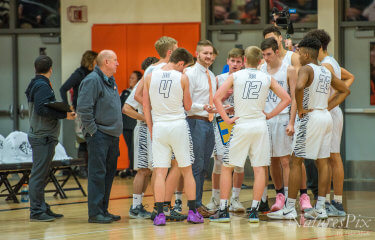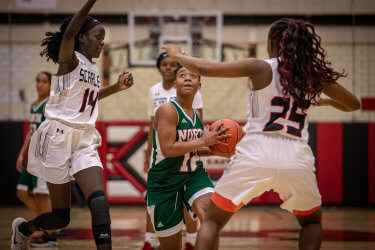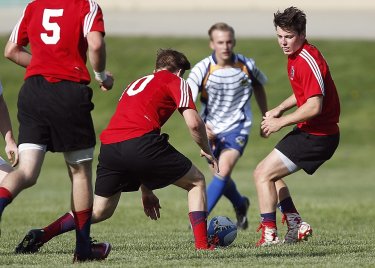(2 Minute Read)
Recently I had the opportunity to attend the USA Basketball Mini-Camp in Colorado Springs and observe the top high school boys’ basketball players from around the country; potentially 80 future NBA players in the making. As I was taking notes of basketball plays, drills, and interactions between players and coaches, I thought back to my own high school basketball program. I asked myself, “What can I get from this weekend to help my team?”
 Photo Credit: Tyler Mode
Photo Credit: Tyler Mode
Around the country, sport specialization is a growing trend among student-athletes because the reward at the end of the tunnel could be a Division I scholarship or possibly a professional contract. Even though student-athletes are trying to pursue this goal, the data is not that encouraging. Only 3.4% of high school student-athletes will play college basketball and only 1% will play Division I basketball. Of those playing Division I, only 1.2% will make it to the professional level (NCAA, 2019). The numbers are similar across all other sports.

What I realized in watching the top prep basketball players, is that there are only a select few who can play at this level. The message I need to convey to my high school student-athletes and parents should focus on the benefits of high school sports and the life lessons it can present for their son or daughter. As a coach, I need to stress the importance of sacrifice, dedication, teamwork, communication, and how to handle adversity; just a few of the life lessons sports can teach us. My student-athletes can learn a lot about themselves after a difficult loss, a big win, a tough practice, losing a starting position in the line-up, or how to handle the hiring of a new coach.

Knowing I can play a role in preparing my student-athletes for life after sports has led me to focus on building relationships with all my athletes in and out of season. I over-communicate. I am constantly talking with my players about setting goals and how can I help them develop their skills. I ask them questions about what they want out of the season and how I can best support them. By building these relationships, future conversations (whether difficult or positive) become easier. As a coach, I have made a total commitment to helping both student-athletes and parents value the high school experience by encouraging multi-sport participation and by promoting a competitive, fun environment in my program where they can learn about themselves and develop life skills.
References
Smeyers@ncaa.org. (2019, April 9). Estimated probability of competing in college athletics. Retrieved from http://www.ncaa.org/about/resources/research/estimated-probability-competing-college-athletics
